Office developers inclined to incorporate ESG standards
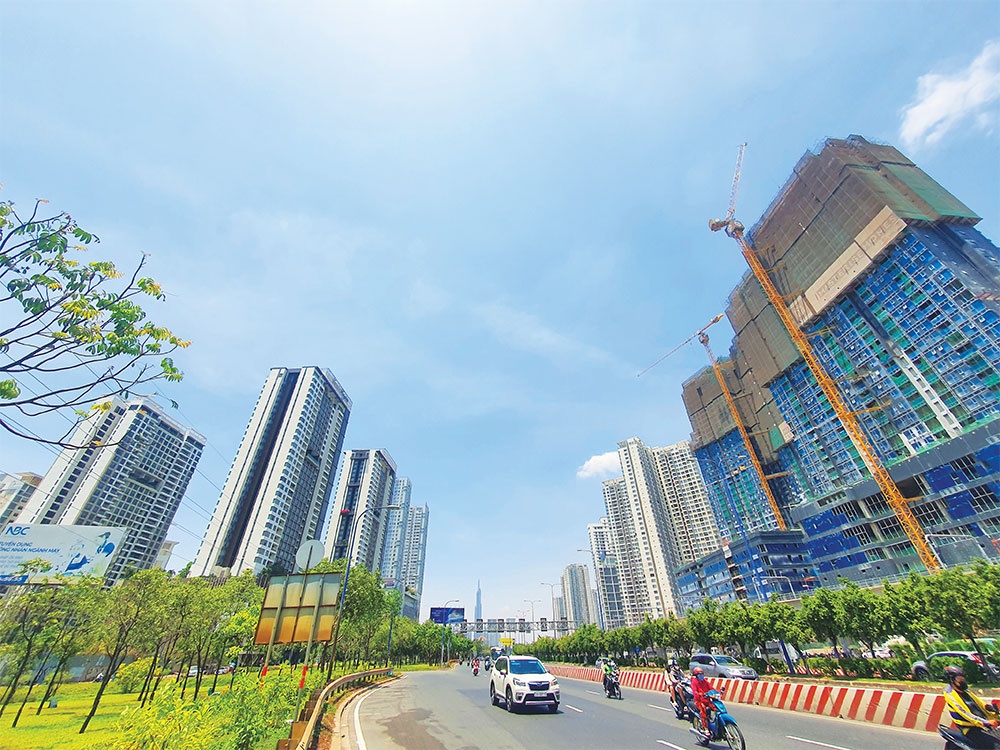 |
| Office products will have to meet more requirements than in the past, to include green and tech aspects, photo Le Toan |
OfficeHaus, a newly built Ho Chi Minh City complex in Celadon City, is attracting interest from companies shifting from traditional central business districts.
With the imbalance of supply and demand in large commercial centres such as districts 1 and 3 of Ho Chi Minh City, many businesses are seeking to move to alternative locations in non-business district areas where they can effectively reduce costs.
An Infocus Mekong Research poll concluded at the beginning of the year revealed that 3.2 million people live within OfficeHaus’ 7km catchment area. Surrounding areas have a population that is slightly younger than the Ho Chi Minh City average (84 per cent in the 20-40 age group) and is more highly educated, with 79 per cent of poll respondents holding university degrees.
With more than 24 universities and 13 colleges in the vicinity, these are ideal conditions for the recruitment of a young, educated, and motivated tenants’ workforce.
OfficeHaus director Oliver Brazier said the company hears a lot about the changing needs of future generations. But it needs to look beyond just trying to predict the space these generations will need or want in office buildings.
“We should further develop office real estate so that this type can become a means that businesses can take advantage of, to bring satisfaction to their employees, and benefit from increased productivity,” Brazier said.
The OfficeHaus style is deemed a cutting-edge solution to the problems of a growing metropolis, and is LEED Gold certified. It is modelled after the Bauhaus school’s minimalist, practical architecture.
According to Bui Trang, country head of Cushman & Wakefield Vietnam, to be able to survive in the market, office building investors need to reposition, improve facilities, build sustainable services, and improve the community by creating services and events geared towards residents living and working around the property.
In addition, reuse strategies must also be considered, such as converting a building’s function into an industrial, life sciences, or healthcare property.
“In the future, office products that meet the requirements of a new generation of tenants will need many factors related to environmental, social, and governance, high technology, quality experience, and connected traffic,” said Trang.
Cushman & Wakefield’s report suggests that the link between companies’ hiring demand and job growth has not really resumed in the past year. Tenants tend to seek a smaller office space compared to the number of employees because not all will work in the office on a regular basis.
“Existing office buildings of all categories in major cities are doing quite well, with average occupancy rates unchanged on-year at 95 per cent. Although we realise that some corporations have adopted hybrid work in their operations, the majority of companies in Vietnam are still hesitant for various reasons,” said Trang.
Nicholas Michaux, the founder of financial consultants Alpha Prime, told VIR that offices for lease and commercial buildings in Vietnam are sought after by foreign investors, as returns could be higher. And in Vietnam’s big cities, houses and apartments tend to be smaller, with many generations living under one roof. This, along with the lagging technology and internet in the workplace, makes it difficult for the Vietnamese labour market to accept hybrid work.
“From a perspective of a foreign fund-raiser and consultant, I see many commercial assets in Vietnam are on the radar of foreign investors. The point is which ones should be appropriated for their demand,” Michaux said. “With international and local companies still increasing their need to upgrade office space, increase headcount, and expand operations, the office market will continue to perform strongly for the next decade.”
A Knight Frank Vietnam report on Q1 indicated that Grade A office space for lease in Ho Chi Minh City had a stable vacancy rate of 4.9 per cent, the same as it was last year. However, the market will have great fluctuations thanks to the addition of supply from more than 131,000 square metres of office space that are about to come into operation within the next 12 months. Therefore, the vacancy rate might be increased up to 25 per cent.
Leo Nguyen, director of Strategy and Tenant Solutions at Knight Frank Vietnam, commented that this oversupply situation has not happened for over 10 years, and advises building owners to be prepared to face challenges when the office market shifts in favour of tenants.
“We will see a major increase in Grade A office supply in Thu Duc city and south of Ho Chi Minh City. Especially noteworthy is the new supply of nearly 100,000sq.m in the central area and Thu Duc, respectively, with extremely competitive rents,” said Nguyen.
Knight Frank also predicts Grade A office rents will fall by over 17 per cent over the next three years.
The business result of the Grade B office segment has also tilted more towards tenants faster than analysts had anticipated, and can be taken as an indicator of what is to come on a larger scale. This segment will receive an addition of under 300,000sq.m of floor space by 2025, thereby nearly doubling the vacancy rate to 23 per cent. This is the largest Grade B vacancy rate in the market for over a decade now, and Knight Frank experts forecast it to remain above 10 per cent over the next year or two.
Nguyen commented that the prediction of around a quarter of Grade A/B offices for lease in Ho Chi Minh City to be vacated is unprecedented. “Because of that, this is an ideal time for tenants to discuss with landlords and consultants on the term and the future office rental price,” he said.
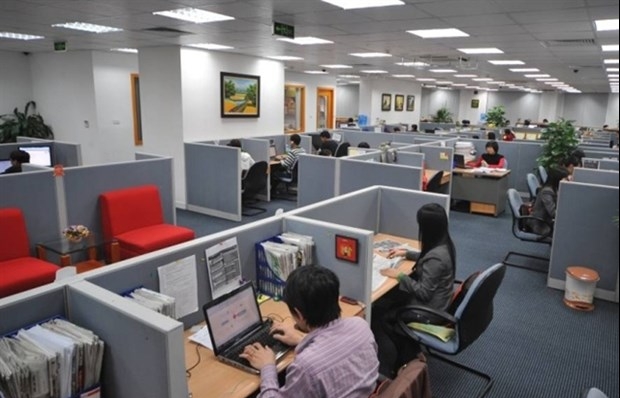 | Vietnam office market will make rapid recovery: experts The office market in Vietnamese cities like Hanoi and HCM City is likely to recover faster post-COVID-19 than other major cities in the Asia Pacific, experts have predicted. |
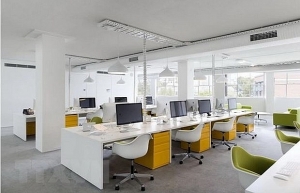 | Hanoi’s office market increasingly attractive to foreign tenants: Savills Hanoi Hanoi’s office market is said to be more attractive than its counterparts in other Southeast Asian cities and even in the Asia-Pacific region because of cheaper rentals and greater supply, according to real estate consultants Savills Hanoi. |
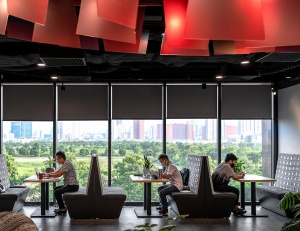 | Office market opens its doors to more flexible work models As Vietnam enters into a new normal, businesses are reorganising and relocating their workforce accordingly, leading to a more diverse office market that is characterised by flexible solutions like working from home and in coworking spaces. |
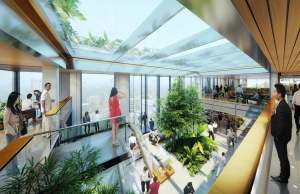 | Trends influencing the premium office market in Hanoi According to Savills latest market report, the office market will perform well this year with ICT and financial, insurance, real estate, and legal (FIRE) tenants leading demands. According to Hoang Nguyet Minh, senior director of Commercial Leasing at Savills Hanoi, the rent of grade-A offices will also depend on the future supply. Increasingly, tenants are selecting offices in buildings with green certificates that also cater to hybrid or agile working. |
What the stars mean:
★ Poor ★ ★ Promising ★★★ Good ★★★★ Very good ★★★★★ Exceptional
Related Contents
Latest News
More News
- Saigon Centre gains LEED platinum and gold certifications (February 12, 2026 | 16:37)
- Construction firms poised for growth on public investment and capital market support (February 11, 2026 | 11:38)
- Mitsubishi acquires Thuan An 1 residential development from PDR (February 09, 2026 | 08:00)
- Frasers Property and GELEX Infrastructure propose new joint venture (February 07, 2026 | 15:00)
- Sun Group led consortium selected as investor for new urban area (February 06, 2026 | 15:20)
- Vietnam breaks into Top 10 countries and regions for LEED outside the US (February 05, 2026 | 17:56)
- Fairmont opens first Vietnam property in Hanoi (February 04, 2026 | 16:09)
- Real estate investment trusts pivotal for long-term success (February 02, 2026 | 11:09)
- Dong Nai experiences shifting expectations and new industrial cycle (January 28, 2026 | 09:00)
- An Phat 5 Industrial Park targets ESG-driven investors in Hai Phong (January 26, 2026 | 08:30)

 Tag:
Tag:





















 Mobile Version
Mobile Version